The Must Have Small Business Tax Deductions List
Every small business owner wants to save money — and small business tax deductions are one way to do just that.
Small business owners spend time each January reviewing invoices and receipts as a first step toward filing their taxes. But this process generally results in spending money rather than saving it. Let’s flip this concept on its head for a moment. In reality, tax time can be a time when you save money if you take advantage of all the small business tax deductions that are available and appropriate for your business. Instead of sending money to the government, you could be channeling it back into your business. Wouldn’t that be amazing? Since we know you agree, take a look at the top 35 small business deductions you should take advantage of this year.
1. Vehicle Expenses
Keep records during the year to prove the business usage of your car, truck or van, especially if you also use the vehicle for personal reasons. You can choose here to deduct your actual costs (including gasoline, maintenance, parking and tolls), or you can take the simple route of using the IRS standard mileage rate — 54 cents per mile in 2016. Whether you’re running errands in your own car or making deliveries in your bakery van, run some numbers to see which method gives you the higher deduction. We all know that gas, repairs, and parking add up, and every little bit helps.
2. Home Office
Do you run part of your small business out of your home, maybe doing the books in the evenings after you’ve parked your food truck for the night? If you have a space at home that’s devoted to your work, even if it’s just part of a room, you are probably entitled to take a home office small business deduction. This amount can include the proportionate amount that you spend on insurance and utilities as well as your rent or mortgage.
3. Bonus Depreciation
If you buy new capital equipment, such as a new oven for your pizzeria, you get this tax break that lets you deduct 50 percent of your costs upon purchase. However, pay attention to an upcoming change: The bonus depreciation small business deduction drops to 40 percent in 2018, and it sunsets in 2019 — something to keep in mind as you plan for new equipment purchases in the next few year.
4. Professional Services
As a small business, you don’t have in-house accountants or attorneys, but that doesn’t mean you can’t deduct their services. If you hire a consultant to help you grow your gift shop’s outreach, the fees you pay for those services are deductible. Make sure the fees you’re paying are reasonable and necessary for the deduction to count. But, you’d do that anyway, wouldn’t you?
5. Salaries and Wages
If you’re a sole proprietor or your company is an LLC, you may not be able to deduct draws that you take from your business. However, salaries and wages that you pay to those faithful employees behind the cash register are indeed small business tax deductions.
6. Work Opportunity Tax Credit
Have you hired military veterans or other long-term unemployed people to work behind your counter? If so, you may be eligible to take advantage of the Work Opportunity Tax Credit of 40 percent of your first $6,000 in wages.
 7. Office Supplies and Expenses
7. Office Supplies and Expenses
If you’re running a frozen yogurt shop, when you hear the word “supplies,” you probably think of plastic spoons. However, even if your business doesn’t have a traditional office, you can still deduct traditional business supplies and office expenses, so set up a file for your receipts.
8. Client Entertainment
Yes, you can take small business deductions for schmoozing your clients, as long as you do indeed discuss business with them, and as long as the entertainment occurs in a business setting. In some cases, you can’t deduct the full amount of your expenses, but every bit helps.
9. Freelance/Independent Contractor Labor
If you bring in independent contractors to keep your checkout lines moving during the holidays or to create new marketing materials for your shop, you can deduct your costs. Make sure you issue Form 1099-MISC to anyone who earned $600 or more from you during the year.
10. Furniture and Equipment
Did you buy new chairs for your eat-in bakery or new juicing blenders for your juice bar this year? You have a choice regarding how you take your small business tax deduction for furniture and equipment. You can either deduct the entire cost in the year of the purchase, or you can depreciate the purchases across a seven-year period. The IRS has specific regulations that govern your choices here, so make sure you’re following the rules.
11. Employee Benefits
Keep track of all contributions you make to your employees’ health plans, life insurance, pensions, and profit-sharing. They’re all tax-deductible.
12. Computer Software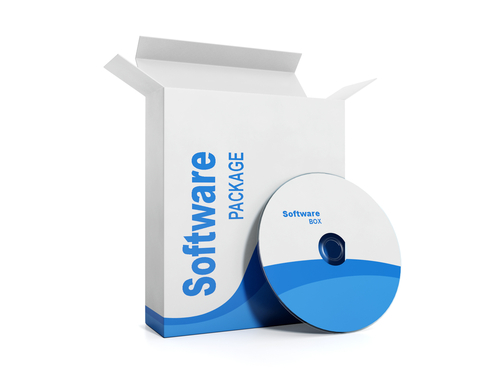
You can now deduct the full cost of business software as a small business tax deduction, rather than depreciating it as in years past. This includes your POS software and all software you use to run your business.
13. Rent on Your Business Location
You undoubtedly pay rent on your pet store or candy shop. Make sure you deduct it.
14. Startup Expenses
If you’ve just opened your gift shop or convenience store, you may be able to deduct up to $5,000 in startup expenses that you incurred before you opened your doors to business. These can include marketing and advertising costs, travel, and employee pay for training.
15. Utilities
Don’t miss the small business tax deductions for your electricity, mobile phone, and other utilities. If you use the home office deduction, your landline must be dedicated to your business to be deductible.
16. Travel Expenses
For retail shop or boutique owners, if you’re traveling to a trade show, you can take a small business deduction for all your expenses, including airfare, hotels, meals on the road, and even tipping your cab driver. Keep track of all expenses to support your deduction.
17. Taxes
Deducting taxes is a little tricky, because the small business deduction depends on the type of tax. Deduct all licenses and fees, as well as taxes on any real estate your business owns. You should also deduct all sales taxes that you have collected from the customers at your deli. You can also deduct your share of the FICA, FUTA, and state unemployment taxes that you pay on behalf of your employees.
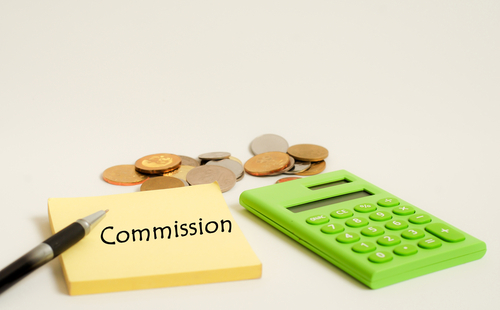 18. Commissions
18. Commissions
If you have sales people working on commission, those payments are tax-deductible. You can also take a small business tax deduction for third-party commissions, such as those you might pay in an affiliate marketing set-up.
19. Machinery and Equipment Rental
Sometimes renting equipment for your coffee shop or concession stand is beneficial to your bottom line, since you can deduct these expenses in the year they occur with no depreciation.
20. Interest on Loans
If you take out a business line of credit, the interest you pay is completely deductible as a small business tax deduction. If you take out a personal loan and funnel some of the proceeds into your business, however, the tax application becomes somewhat more complicated.
21. Inventory for Service-Based Businesses
Inventory normally isn’t deductible. However, if you’re a service-based business and you use the cash method of accounting (instead of the standard accrual method typically used for businesses with inventory), you can treat some inventory as supplies and deduct them. For instance, if you’re an ice cream shop but you sell your special hot fudge sauce as a product, your inventory may be deductible.
22. Bad Debts
Did you advance money to an employee or vendor, and then not receive repayment or the goods or services you thought you were contracting for? If so, you may be able to treat this bad business debt as a small business deduction.
23. Employee Education and Child Care Assistance
If you go above and beyond with your employee benefits, you may be able to take small business tax deductions for education assistance and dependent care assistance. The IRS is pretty much rewarding you here for being a great employer. So take a bow, and the deduction.
24. Mortgage Interest
If your business owns its own building, even if it’s just a hot dog stand, you can deduct all your mortgage interest, without a cap, as there is for deductions on your personal residence.
25. Bank Charges
Don’t forget to deduct the fees your bank charges you for your business accounts. Even any ATM fees are deductible.
26. Disaster and Theft Losses
If your business is unfortunate enough to suffer theft or to be the victim of a natural disaster during the year, you may be able to turn any losses that your insurance company didn’t reimburse into a small business tax deduction.
27. Carryovers From Previous Years
Some small business tax deductions carry over from year to year. For instance, if you had a capital loss in a previous year, you may be able to take it in the current year. Specifics often change from year to year, to make sure you’re up to date on the latest IRS regulations.
28. Insurance
The insurance premiums you pay for coverage on your business is all tax-deductible.
29. Home Renovations and Insurance
Did you take a deduction for a home office already? If so, any renovations to that part of your home are also deductible, and so is the percentage of your homeowner’s insurance that covers that part of your home. Remember, all small business deductions related to home offices only apply if you use part of your home exclusively for business.
 30. Tools
30. Tools
The IRS distinguishes between tools and equipment. While you may have to capitalize equipment rather than deducting it in one year, you can deduct tools that aren’t expensive or that have a life of only a year or less. And for the IRS, “tools” doesn’t just refer to hammers or screwdrivers; your spatulas and cookie sheets are tools as well.
31. Unpaid Goods
If your business produces goods rather than providing a service, you can deduct the cost of any goods that you haven’t been paid for yet.
32. Education
Did you attend any seminars, workshops or classes in the past year that were designed to help you improve your job skills? Your work-related educational expenses may be deductible, especially if they’re required to keep up or renew a professional license. Remember, they have to be work-related. If you own a bar or cafe, you won’t be able to deduct skiing lessons.
33. Advertising and Marketing
You already know that providing amazing goods and services isn’t enough to make your business succeed. You also need to advertise so your potential customers can find you. Advertising and marketing dollars can add up fast, but fortunately, they are all tax-deductible.
34. Charitable Deductions
Yes, your small business can donate to charity and take a deduction for it. It can donate supplies, money, or property to a recognized charity, but pay attention to the rules before you go crazy giving stuff away. Donations of your time don’t count, and you can’t wipe out your business income with donations. Also, check with the IRS before you make a charitable deduction to make sure the organization you want to support qualifies for the deduction.
35. Cleaning and Janitorial Expenses
You know all too well that the work day isn’t over when you flip the sign on the door to say “Closed.” If you hire any type of cleaning service, make sure you take your small business tax deduction.
Though your taxes might not be due until April 18, preparing your taxes actually begins each January when you begin keeping records of your expenses. Make sure you can document each of these small business tax deductions. If you’re keeping physical receipts, write down the business reason for the expense on the receipt as soon as you receive it. Small business deductions can be tricky, it’s always best to consult a tax expert for any questions that might arise.
This article originally appeared Feb 27, 2017 by Sara Sugar on shopkeep.com. To see the article in it’s entirety please visit here.





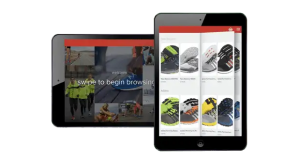
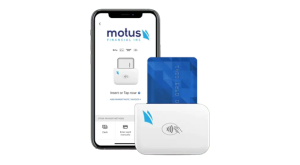
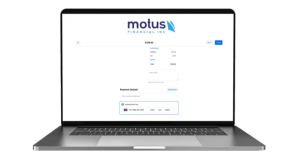
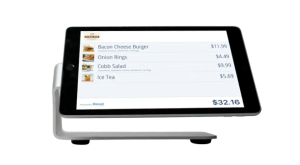 Our POS systems are designed to streamline in-store transactions. With features like inventory management, sales reporting, and customer tracking, our POS solutions help you run your business more efficiently. Our terminals are compatible with various payment methods, including chip cards, contactless payments, and mobile wallets.
Our POS systems are designed to streamline in-store transactions. With features like inventory management, sales reporting, and customer tracking, our POS solutions help you run your business more efficiently. Our terminals are compatible with various payment methods, including chip cards, contactless payments, and mobile wallets.
